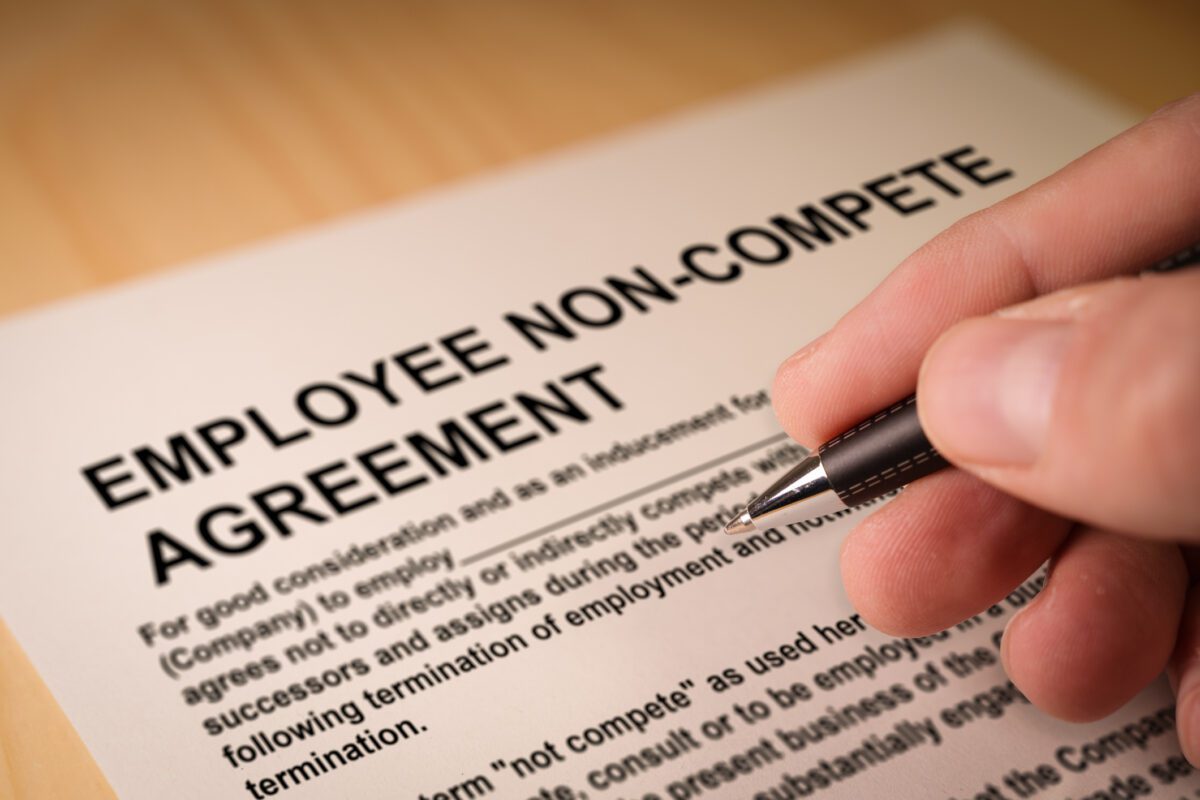
The FTC voted to ban noncompete agreements in April—those pesky clauses that employers often force their workers to sign which effectively bar them from starting their own business or finding a new job in the same field within a certain area or timeframe after leaving their current job. (Photo via Getty Images)
The FTC voted to ban noncompete agreements in April—those pesky clauses that employers often force their workers to sign which effectively bar them from starting their own business or finding a new job in the same field within a certain area or timeframe after leaving their current job.
Judge Ada Brown, a Trump-appointed federal judge in Texas, has issued a preliminary order against the Federal Trade Commission’s (FTC) ban on noncompete clauses, which is scheduled to take effect this fall.
The order was issued last week in a lawsuit brought by Ryan LLC, a company owned by a Republican mega donor and tax adviser to former president Donald Trump.
In April, the FTC voted to ban noncompete agreements—those pesky clauses that employers often force their workers to sign which effectively bar them from starting their own business or finding a new job in the same field within a certain area or timeframe after leaving their current job.
The move was lauded by the country’s largest labor federation.
“Noncompete agreements trap workers from finding better jobs, drive down wages, and stifle competition,” the American Federation of Labor tweeted.
An estimated 30 million American workers are currently affected by noncompete clauses—that’s roughly 18% of the US workforce. These clauses have been shown to lower workers’ pay and restrict their opportunity and mobility.
The rule agreed upon earlier this year would ban new noncompete agreements for the vast majority of American workers and require employers to let current and past employees know they won’t enforce them going forward. Companies would also be required to throw out existing noncompete agreements for most of their employees.
Additionally, existing noncompetes for senior executives, who represent less than 0.75% of workers, can remain intact under the new rule. Employers would be banned, however, from entering into any new noncompete agreements with senior executives.
The FTC estimates that the rule, if put into place, would boost workers’ wages by up to $488 billion over the next decade, with earnings for the average American worker increasing by an additional $524 per year. The agency also expects that banning noncompetes would lower spending on physician services by between $74 billion and $194 billion over the next decade.
The final rule is also expected to help drive American innovation; the FTC estimates there would be 17,000 to 29,000 more patents filed each year over the next decade. Additionally, new business formation is expected to grow by 2.7% each year.
Ryan LLC argued that the FTC overstepped its legal authority to ban noncompete agreements; the Dallas-based tax services firm uses noncompetes to keep workers from poaching firm clients and to keep competitors from hiring its workers.
Ultimately, the court agreed that the FTC lacks the authority to institute such a rule.
This injunction comes just days after the United States Supreme Court’s decision to overturn the Chevron doctrine, which for decades has led judges to defer to federal agencies when interpreting a law with unclear language. In overturning the legislation, judges were given more power to challenge these agencies’ rulemaking authority.
Brown’s ruling is limited in scope, however—it only bars the FTC from enforcing the ban on noncompetes against plaintiffs, such as Ryan LLC and the US Chamber of Commerce, which filed a lawsuit against the FTC in federal court in the Eastern District of Texas in April.
Chamber President and CEO Suzanne Clark called the FTC vote “a blatant power grab that will undermine American businesses’ ability to remain competitive.”
Brown said last week that she intends to rule on the merits by the end of next month.

Trump-appointed judge strikes down FTC ban on noncompete agreements
FTC spokesperson Victoria Graham said that the decision “does not prevent the FTC from addressing noncompetes through case-by-case enforcement...

Judge upholds Biden-Harris administration’s ban on noncompete clauses
Noncompete clauses effectively prevent workers from starting their own business or finding a new job in the same field within a certain area or...

Op-Ed: To end child labor violations in Virginia, we must fix our broken immigration system
After school, fourteen-year-old Accomack County resident Marcos Cux gets ready for a grueling overnight shift at a chicken slaughterhouse run by...

Virginia House Dems pass bill to increase minimum wage to $15 per hour
On Friday, the Virginia House of Delegates voted to pass House Bill (HB) 1, which would increase the state’s minimum wage to $15 per hour starting...

How Virginia’s new Democratic majority looks to restore, expand workers’ rights
Virginia, one of the nation’s 27 so-called “right to work” states, has historically been hostile to expanding access to collective bargaining and...

Millions of workers could get more benefits under new Biden policy
Millions of American workers who are currently classified as “independent contractors” and thus lack crucial workplace benefits such as overtime pay...



